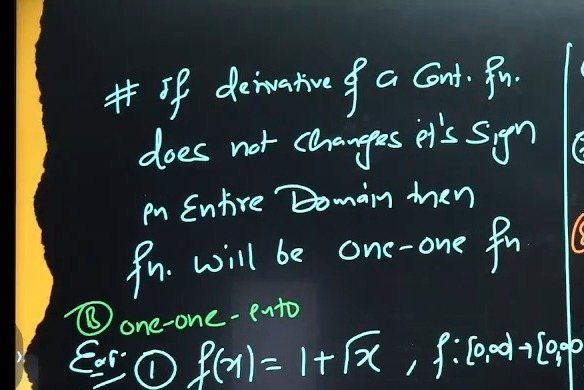Question
Question: If the derivative of a continuous function does not change its sign on its entire domain, then the f...
If the derivative of a continuous function does not change its sign on its entire domain, then the function will be one-one. Analyze the function f(x)=1+x with domain [0,∞) and codomain [0,∞).

A
one-one and onto
B
one-one but not onto
C
onto but not one-one
D
neither one-one nor onto
Answer
one-one but not onto
Explanation
Solution
The statement provided is correct: a continuous function whose derivative does not change sign on its domain is one-to-one.
For the function f(x)=1+x:
- Continuity: f(x) is continuous on its domain [0,∞).
- Derivative: f′(x)=2x1. For x>0, f′(x)>0. The derivative is always positive on (0,∞), so it does not change sign. This confirms the function is one-to-one.
- One-to-One Check: If f(x1)=f(x2), then 1+x1=1+x2, which implies x1=x2, and thus x1=x2. The function is indeed one-to-one.
- Onto Check: The domain is [0,∞). The range of x for x∈[0,∞) is [0,∞). Therefore, the range of f(x)=1+x is [1,∞). The codomain is given as [0,∞). Since the range [1,∞) is not equal to the codomain [0,∞), the function is not onto.
Thus, the function is one-to-one but not onto.
